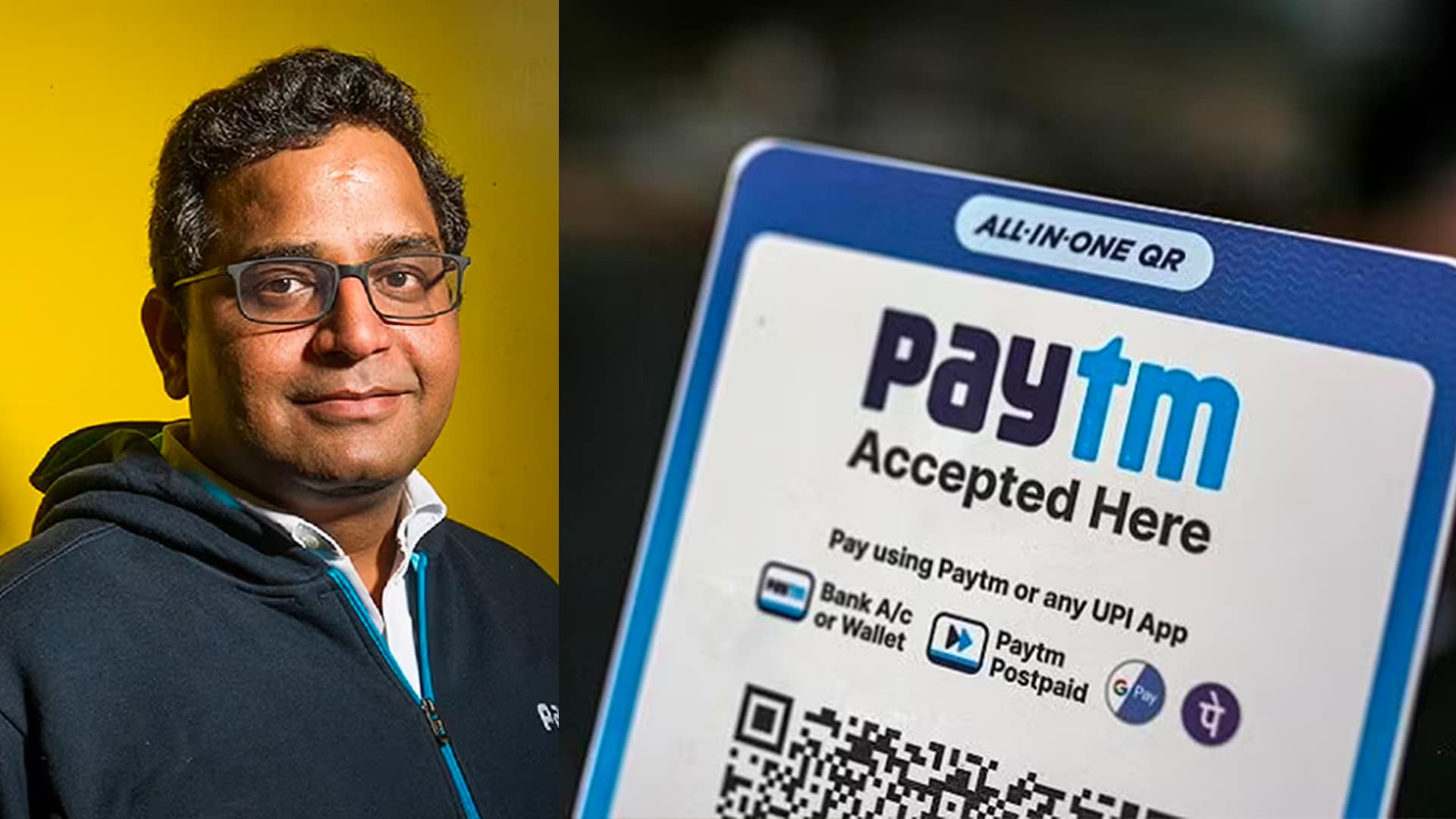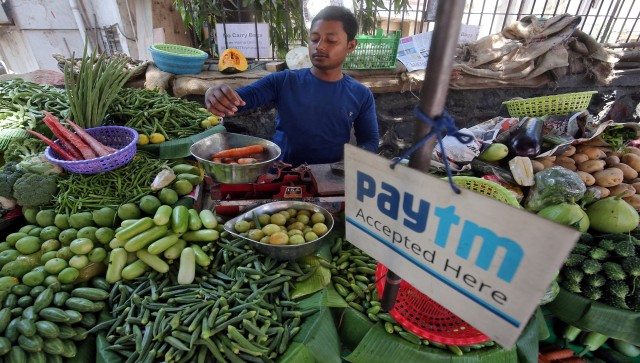Paytm Payments Bank is in crisis. The Reserve Bank of India (RBI) has dropped the hammer on the company earlier in February – ordering a halt to nearly most of its business by 29 February. The bank, a restricted one, has been forbidden to take any more deposits from customers, carry out credit business or top up any accounts of customers, prepaid instruments, wallets, cards for paying road tolls come 29 February. Now, Moneycontrol reported that Paytm has confirmed the resignation of Manju Agarwal – an independent director of Paytm Payments Bank Limited (PPBL). “We hereby submit that our associate entity, Paytm Payments Bank Limited (PPBL), has informed us that Manju Agarwal, Independent Director resigned from the Board of PPBL on February 01, 2024, due to her personal commitments which was noted by PPBL Board on February 06, 2024,” the company said. But can Paytm survive the crisis at Paytm Payments Bank? Let’s take a closer look: What happened? Vijay Shekhar Sharma, the son of a schoolteacher from Aligarh district in Uttar Pradesh, was enamoured by Jack Ma-run Alibaba’s focus on smartphones rather than desktop computers. Sharma built a digital payments company that would let Indians pay for vegetables, pay utility bills or buy cinema tickets using their mobile phones. The poster boy of India’s fintech boom, also set out to build an Alipay-like mobile marketplace to go alongside the payments business, allowing businesses to sell goods from matchbox to iPhones online. [caption id=“attachment_13682352” align=“alignnone” width=“640”] Describing the RBI order that has imposed restrictions on Paytm Payments Bank as a big speed bump, Paytm & One97 CEO Vijay Shekhar Sharma has tried to assure users that the digital payments and services app will continue to operate without disruption beyond 29 February.[/caption] With fame came a set of controversies for arguably the most high-profile of a wave of Indian tech entrepreneurs.
Describing the RBI order that has imposed restrictions on Paytm Payments Bank as a big speed bump, Paytm & One97 CEO Vijay Shekhar Sharma has tried to assure users that the digital payments and services app will continue to operate without disruption beyond 29 February.[/caption] With fame came a set of controversies for arguably the most high-profile of a wave of Indian tech entrepreneurs.
But none like the one now.
The current crisis where the Reserve Bank of India (RBI) has ordered Paytm Payments Bank to halt most of its business, is an existential one. What is Paytm Payments bank? First, it is important to understand the governance structure of Paytm and Paytm payments bank. One97 Communications Limited (OCL) is the parent company of Paytm. Paytm Payments Bank Ltd is a subsidiary of OCL.
So, Paytm and Paytm Payments Bank Ltd are two separate companies.
“There may be an impression that Paytm and Paytm Payment Bank is one, but by design and by structure, it is not and it cannot be,” said Madhur Deora, president and Group CFO at Paytm, was quoted as saying by Business Today earlier in February_._ PayTm banks"First it is an associate company and second is not an associate company in the sense that it is same Bank. And first and foremost, for a bank is that, it has to follow the governance that a bank is supposed to follow, which is to say that has to has its independent management team, which reports to the board,” Deora further explained. PPBL commenced operations as a payments bank with effect from 23 May, 2017. It offered digital banking, including savings accounts, current accounts, fixed deposits with partner banks, and balance in wallets, UPI, and FASTag, among other services. One97 Communications holds 49 per cent of the paid-up share capital (directly and through its subsidiary) of PPBL. Sharma has a 51 per cent stake in the bank. Paytm Wallet, which comes under PPBL, leads the segment. As per the RBI’s provisional data for December 2023, Paytm Wallet users carried out 24.72 crore transactions worth over ₹8,000 crore for purchase of goods and services while 2.07 crore transactions were carried out for transferring over ₹5,900 crore. What did the RBI do? The RBI directed the Paytm Payments Bank to stop accepting deposits or top-ups in customer accounts, wallets, FASTags and other instruments after 29 February. As per News18, the central bank cited “persistent non-compliances and continued material supervisory concerns in the bank.” Withdrawal or utilisation of balances by its customers from their accounts, including savings bank accounts, current accounts, prepaid instruments, FASTags, National Common Mobility Cards, are to be permitted without any restrictions, up to their available balance.
Paytm Wallet users can continue to carry on transactions till 29 February.
However, after February 29, they will be able to use their existing balance till the time it is exhausted but not add any money to their account. The same rule is applicable on PPBL accounts, Paytm Wallet-linked services like FASTag, National Common Mobility Card that are used for travel in metro and other public transport. Why did it do so? The banking regulator had been frequently flagging issues with Patym Payments Bank. According to sources, money laundering concerns and questionable dealings of hundreds of crores of rupees between popular wallet Paytm and its lesser-known banking arm had led RBI to clamp down on entities run by Sharma. [caption id=“attachment_13302802” align=“alignnone” width=“640”] The RBI in its order cited “persistent non-compliances and continued material supervisory concerns in the bank.”[/caption] Sources further said that PPBL had lakhs of non-KYC (Know Your Customer) compliant accounts and in thousands of cases single PANs were used for opening multiple accounts. NDTV Profit reported that more than 1,000 accounts were found to be linked to the same PAN. There were instances of the total value of transactions — running into crores, much beyond regulatory limits in minimum.
The RBI in its order cited “persistent non-compliances and continued material supervisory concerns in the bank.”[/caption] Sources further said that PPBL had lakhs of non-KYC (Know Your Customer) compliant accounts and in thousands of cases single PANs were used for opening multiple accounts. NDTV Profit reported that more than 1,000 accounts were found to be linked to the same PAN. There were instances of the total value of transactions — running into crores, much beyond regulatory limits in minimum.
KYC pre-paid instruments raising money laundering concerns, sources said.
While users have the option to switch to other wallets, and FASTag services etc being provided by other vendors, Paytm management has said that PPBL is in discussion with the RBI to comply with their direction for continuing the business. Will Paytm be affected? Paytm has said that its financial services such as loan distribution, insurance distribution and equity broking are not in any way related to PPBL and are expected to be unaffected. The company’s offline merchant payment network offerings like Paytm QR, Paytm Soundbox, Paytm Card Machine will continue as usual, where it can onboard new offline merchants as well. Sharma called the RBI order a “big speed bump” and said that he could not understand the trigger for the move. “On behalf of Paytm, I can say it is more of a big speed bump but it is something that we believe that with partnership of other banks and capabilities that we have already developed, we will be able to see through in the next few days or quarters as the case will be,” he said during an investors call. Paytm says it sees an impact of ₹300-500 crore on its annual operational profit. While One97 Communication has said it will transfer all Paytm Payments Bank (PPB) accounts to other banks, experts say this is easier said than done. “When you ask these merchants to move their account from PPB to another bank, Paytm will likely lose the credibility and confidence of these merchants,” a senior executive with a large fintech firm told Moneycontrol.
The outlet quoted investment banking firm Macquarie as saying this could have ‘a significant impact’ on Paytm.
Impact Shorts
View All“Given the severe restrictions imposed on PPBL, we believe it significantly hampers Paytm’s ability to retain customers in its ecosystem, and accordingly restricts it from selling payment products and loan products. We think revenue and profitability implications in the medium to long term could be significant and remain a key item to monitor,” it said. “They will have to convince every single merchant to link another bank account to their UPI address instead of the PPB account. This will also likely change the QR codes. Now they will have to issue new QR codes, paste the new QR codes on the millions of soundbox devices wherever it is linked to PPB. This is a logistical nightmare,” another fintech consultant added. “The question is whether Paytm can be the same without its payment bank. Vijay Shekar Sharma, the founder and CEO of One 97, and his top management team made it sound like cutting the umbilical cord with Paytm Payments Bank would not be a big deal,” a piece in Hindu Business Line noted. “But without the payments bank, Paytm has little to distinguish itself from peers such as PhonePe or GooglePay." “In fact, with having to touch base with other banks, Paytm’s battles are set to compound, and this time, it would be picking fights with biggies who have ample liquidity, network and years of credibility ingrained in their names.” The piece noted that payments comprise over r 60 per cent of One97’s revenue, and that the company “is far from generating operating profits.” “While margins in the payments business may not be meaty, a change in model can alter the dynamics of Paytm’s ability to turn profitable at an operating level,” the piece concluded. Sharma, perhaps recognising this, has asked the RBI to extend its 29 February deadline, as per News18. With inputs from agencies
)